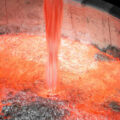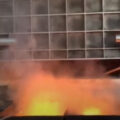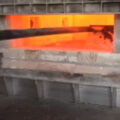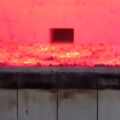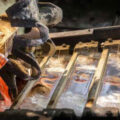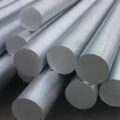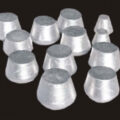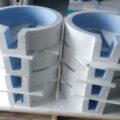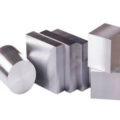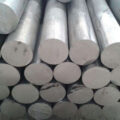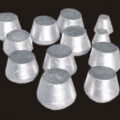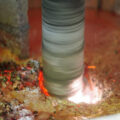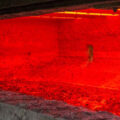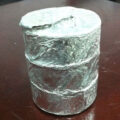The impurity elements in 2000 series Al-Cu-Mg and Al-Cu-Mn alloys are mainly Fe, Si, Zn and so on. In Al-Cu-Mg alloys with magnesium content of less than 1.0%, silicon content of more than 0.5% can improve the speed and strength of artificial aging without affecting the natural aging ability. Because silicon and magnesium form the Mg2Si phase, it is conducive to the artificial aging effect. However, when the magnesium content is increased to 1.5%, the strength and heat resistance of the alloy will decrease with the increase of silicon content after quenching natural aging or artificial aging treatment. Therefore, the silicon content should be as low as possible.
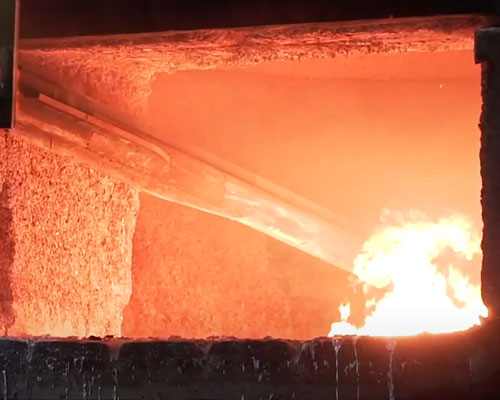
In addition, the increase in silicon content will increase the tendency of 2A12, 2A06 and other alloys to form cracks in casting, and reduce the plasticity during riveting. Therefore, the silicon content in the alloy is generally limited to less than 0.5%. For alloys that require high plasticity, the silicon content should be lower.
Impurity Elements in 2000 Series
Fe and Al form FeAl3 compounds. Fe can also form coarse compounds with elements such as Cu, Mn, and Si. These compounds do not dissolve into the matrix and reduce the plasticity of the alloy. The alloy is prone to cracking during deformation. And significantly reduce the strengthening effect. However, a small amount of Fe (less than 0.25%) has little effect on the mechanical properties of the alloy, which improves the tendency of casting and welding crack formation, but reduces the natural aging speed. In order to obtain higher plasticity materials, the content of Fe and Si in the alloy should be as low as possible. A small amount of Zn (0.1% to 0.5%) has little effect on the room temperature mechanical properties of Al-Cu-Mg alloy, but it reduces the heat resistance of the alloy. The content of Zn in the alloy should be limited to less than 0.3%.
When the Fe content in the Al-Cu-Mn alloy exceeds 0.45%, the insoluble phase Al7Cu2Fe is formed, which will weaken the mechanical properties of the alloy in the quenched aging state and the fatigue strength at 300°C. Therefore, the Fe content is generally limited to 0.3% or less. A small amount of Si (0.4%) has no obvious effect on the room temperature mechanical properties, but it will also reduce the fatigue strength at 300°C. When the Si content exceeds 0.4%, it will also reduce the room temperature mechanical properties. Therefore, the Si content is required to be below 0.3%. A small amount of Zn (0.3%) has no effect on the room temperature performance of the alloy, but it can accelerate the diffusion of Cu in Al and reduce the fatigue strength of the alloy at 300°C, which is generally controlled below 0.1%.
AdTech offers fluxes for impurity removal. The flux solves the problem of traditional massive dosage and ash output refining effect. The dosage of AdTech refining flux 1.5-2.0kg per ton, with ash output of 0.8-1%, fulfilling high-precision aluminum alloy casting requirement, effectively improving the molten metal yield rate of 0.6-0.8%, achieving energy-saving purpose.

